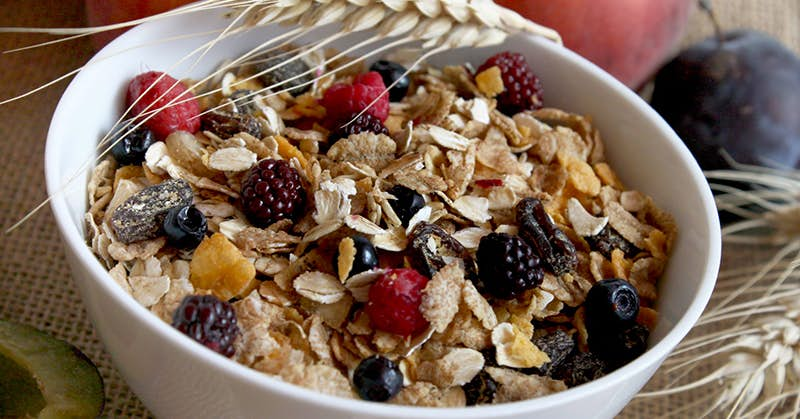
Klotho Protein: An Abundance in Healthy Brains
The science shows that you were born with large supplies of klotho, which is produced mostly in the kidneys. As with many of your body’s most important nutrients and natural compounds, your supply of klotho slowly declines. In fact, babies generally have five times as much klotho in their bodies as adults! Turns out that folks whose klotho levels decline more slowly as they get older usually suffer fewer age-related health problems and their mental prowess remains strong. According to researchers at the University of Toronto in Canada, having plenty of klotho can lower inflammation, help your immune system, and keep a wealth of critical cellular functions running at optimal levels.1 For example, to keep the brain performing at its best, klotho is assigned the job of helping protect cells from inflammation. As you’ve read here many times, brain inflammation is a destructive process that can take place when misbehaving immune cells are let loose in brain tissue and damage neurons. The guardhouse from which klotho carries out this mission is a brain structure called the choroid plexus.Choroid Plexus: Your Brain’s #1 Defense System
The choroid plexus both produces cerebrospinal fluid and offers a barrier that stands between the blood that flows through the body and the brain and the central nervous system. This is in addition to the blood-brain barrier which also protects the brain from pathogens and toxins. Research into how well the choroid plexus does its protective work shows that as we age and klotho levels drop, the choroid plexus function starts to slip in ways that can endanger the health of your brain. But if klotho levels remain high, blood and the misbehaving immune cells carried by the blood are effectively blocked.2 And when that brain inflammation is prevented, your neurons do a better job of keeping your memory and learning abilities crystal clear. According to researchers at the University of California – San Francisco, klotho “functions as a gatekeeper at the interface between the brain and immune system.”3Keeping Klotho Maximally Effective
Research into how lifestyle can influence how much klotho you have in your brain and your body has turned up a variety of day-to-day activities that promote your supply of this valuable natural compound. The first one is exercise…Exercise has been shown as vital for keeping your klotho levels up.
A study in Spain of middle-aged folks in their fifties found that just about any type of exercise increases your body’s klotho. In their conclusion, the researchers note that all types of exercises analyzed in the study – including aerobics, interval training and weight lifting, to name a few– boosted klotho. They also noted that people who lost more body fat and put on more muscle from working out increased their klotho the most.4Another way to boost your klotho is to consume more dietary fiber.
You can also boost your klotho levels by eating more fresh fruits and vegetables along with whole grain fibers at your meals. An analysis of the eating habits of more than 11,000 Americans aged 40 to 79 found that those who ate the most fiber had the highest klotho levels.5Eat an anti-inflammatory diet and boost your klotho.
Studies have shown that eating an anti-inflammatory diet can help your klotho levels climb higher.6 An anti-inflammatory diet such as the Mediterranean diet includes nutrient-rich foods like tomatoes, olive oil, nuts, green leafy vegetables, fruits, and fatty fish such as sardines and salmon. On the other hand, it avoids fried foods, foods high in refined carbs like white bread and donuts, sweetened drinks, processed meat like hot dogs and ultra-processed junk food.Good quality sleep is also important to maintaining strong klotho levels.
Studies show that sleep apnea – when your sleep is constantly disrupted by breathing issues – lowers your klotho levels.7 On the other hand, how much you should sleep for optimal klotho levels has not entirely been straightened out. One study, and there haven’t been many, found that less than five and half hours sleep per night lowers your klotho levels, but that more than about seven and half hours is also detrimental to how much klotho circulates in the body.8The Future of Klotho
Researchers hope that someday modern medicine will figure out a way to shoot klotho directly into the brain to help slow the aging process and ward off brain issues like Alzheimer’s disease. Until then, your best bet is following the healthy lifestyle outlined above. It’s the easiest, cheapest, and most effective way to boost your klotho levels and give your brain and your body the best chance at fighting age-related degeneration and illness. Best Regards, The Awakening From Alzheimer’s Team1 https://pubmed.ncbi.nlm.nih.gov/35903083/ 2 https://pubmed.ncbi.nlm.nih.gov/30413620/ 3 https://pubmed.ncbi.nlm.nih.gov/30413620/ 4 https://pubmed.ncbi.nlm.nih.gov/31164040/ 5 https://pubmed.ncbi.nlm.nih.gov/37513564/ 6 https://pubmed.ncbi.nlm.nih.gov/35761232/ 7 https://pubmed.ncbi.nlm.nih.gov/31094281/ 8 https://pubmed.ncbi.nlm.nih.gov/34955652/


